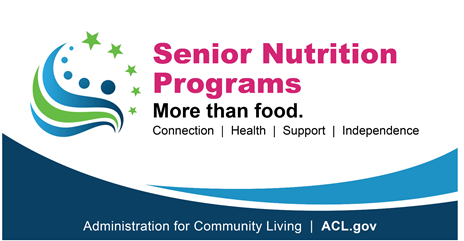Month: February 2021
Colorectal Cancer: Fact or Fiction

By: Brie Veltri, Health Program Specialist, Idaho Department of Health and Welfare
March is National Colorectal Cancer Awareness Month
Colorectal cancer (cancer of the colon or rectum) is the third most common cancer in the United States and the second leading cause of death from cancers that affect both men and women. Colorectal cancer affects people in all racial and ethnic groups and is most common in people age 50 and older.
MYTH: Colorectal cancer only affects men.
Colorectal cancer affects men and women of all racial and ethnic groups.
FACT: Colorectal cancer is the second leading cancer killer in the U.S.
Of cancers affecting both men and women, colorectal cancer is the second leading cancer killer in the United States and the third most common cancer in men and in women.
FACT: Getting screened for colorectal cancer can help prevent the disease.
Screening helps find precancerous polyps (abnormal growths) in the colon and rectum so they can be removed before they turn into cancer. Screening also helps find colorectal cancer early, when treatment works best.
MYTH: If you don’t have symptoms, it means you don’t have colorectal cancer.
Colorectal polyps and colorectal cancer don’t always cause symptoms, especially early on. But screening can find polyps and colorectal cancer even before symptoms appear. That’s why getting screened regularly for colorectal cancer is so important.
FACT: The recommended age for screening is 50 years old.
Your risk of getting colorectal cancer increases as you get older. About 90% of cases occur in people who are age 50 or older. However, you may need to be tested earlier or more often than other people if you have inflammatory bowel disease such as Crohn’s disease or ulcerative colitis, a personal or family history of colorectal cancer or colorectal polyps, or a genetic syndrome such as familial adenomatous polyposis (FAP) or hereditary non-polyposis colorectal cancer (Lynch syndrome). If you think any of these things are true for you, ask your doctor when and how often you should be tested.
MYTH: The only screening test for colorectal cancer is colonoscopy.
There are several types of screening tests for colorectal cancer, including some that you can do at home. Learn about all of the screening test options and talk to your doctor about which is right for you. The best test is the one you do!
FACT: Symptoms of colorectal cancer include: blood in or on your stool, stomach pain, aches or cramps that don’t go away, losing weight and you don’t know why.
If you have any of these symptoms, talk to your doctor. They may be caused by something other than cancer. The only way to know what is causing them is to see your doctor.
FACT: Medicare and most insurance plans cover colorectal cancer screenings.
Check with your plan to see what’s covered. In addition, free or low-cost screenings may be available for you. Six states in CDC’s Colorectal Cancer Control Program provide colorectal cancer screening to low-income men and women aged 50 to 64 years who are underinsured or uninsured for screening, when resources are available, and there is no other payment option.
Talk with your provider to find out what screening option is best for you! For more information about cancer prevention, visit the Comprehensive Cancer Control Program’s website.
Asking for Help is a Strength

By: Roger Sherman, Executive Director of Idaho Children’s Trust Fund
Phew. This has been a year that we will not soon forget. Our work lives have been stressful as we have adapted to working at home. And then, for many of us, we have had to adapt our parenting to accommodate the new norm of online schooling. It has been very hard to find balance between our work and our personal lives.
As the pandemic hit, many of us who are concerned about children’s well-being worried that families would struggle with the isolation and having children at home. We certainly know some of them have and all of us parents have likely felt overwhelmed at times.
We know there have been more than normal infant deaths caused by abuse and FACES has had to respond to more severe cases of abuse than is typical. How to respond?

As the designated child abuse prevention organization for Idaho, the Idaho Children’s Trust Fund, which is also the state affiliate of Prevent Child Abuse America, knew we had to do something to support parents and families. We started working with St. Luke’s Community Health and that soon blossomed into a coalitional effort with Saint Alphonsus, the Idaho Academy of Pediatricians, district health departments, Idaho Voices for Children, childcare and public health divisions within the Department of Health and Welfare.
Working with the communications company 116 and West, we have created a multi-media campaign that we need your help to circulate. The campaign focuses on encouraging parents (including ourselves) to ask for help when they feel overwhelmed and provides them with a call-in number and a resource page to seek help. This will only work if we all get behind it.
While the campaign has some funding to pay for media and some goodwill from the network stations, we are hoping that state employees, the largest workforce in the state, along with employees of the hospitals, Micron and others can use the power of social media to spread the word that asking for help is a strength.
Here’s the pitch: None of us are perfect parents/We all struggle/We all need help sometimes/That’s why we’re here. Call the HelpNow line or go to www.idahofamilysupport.org for resources.
Can you put this out on your Facebook, Twitter and Instagram? Can you send it out to your family, friends and neighbors? We have static images that you can use. Email me at roger.sherman@ctf.idaho.gov.
Let’s become an army of mandated supporters!

Let’s Celebrate the National Senior Nutrition Program

Funded by the Older Americans Act, the National Senior Nutrition Program began in 1972 and has been meeting the nutritional, social, and wellness needs of Older Americans for nearly 50 years. Each March, the Idaho Commission on Aging recognizes its anniversary by celebrating the program’s rich history and tremendous value across the nation with the Area Agencies on Aging and all meal providers. The Administration for Community Living funds senior nutrition services, including home-delivered and congregate meals.

Reach out and encourage the elders in your life to consider attending a weekly congregate meal to promote a healthy mind and body!
March is a universal nutrition and diet awareness month, to raise the importance of nutritionally balanced diets for all ages and cultures, the importance of developing sound eating habits, while companioning physical activity to support overall strength and physical health. The U.S. Departments of Agriculture (USDA) and Health and Human Services release updated Dietary Guidelines for Americans every five years. Each edition reflects the current body of nutritional science and research on what to eat and drink to promote health, while reducing the risk of chronic disease.
Recommendations from the new Dietary Guidelines and MyPlate are to:
- Follow a healthy dietary pattern at every life stage.
- Customize and enjoy nutrient-dense food and beverage choices to reflect personal preferences, cultural traditions, and budgetary considerations.
- Focus on meeting food group needs with nutrient-dense foods and beverages and stay within calorie limits.
- Limit foods and beverages higher in added sugars, saturated fat, and sodium, and limit alcoholic beverages.
- Eat fruits and vegetables, fresh, frozen or canned. Eat dark green vegetables such as leafy greens or broccoli and orange vegetables such as carrots and sweet potatoes.
- Vary protein choices with fish, beans and peas.
- Eat at least three ounces of whole-grain cereals, breads, crackers, rice, or pasta every day. Choose whole grains whenever possible.
- Have three servings of low-fat or fat-free dairy (milk, yogurt, or cheese) fortified with vitamin D to help keep your bones healthy.
- Switch from solid fats to oils when preparing food.
By adopting these goals, your chosen theme strives to help people manage their weight successfully and reduce their risk of chronic disease while promoting general health.
In our busy, fast paced world, myths and misinformation on the internet, social media and other sources make nutrition and healthy eating confusing. Not to mention what is “good for you” is not the same for everyone. There is no one-size-fits all approach to healthy eating.
For more information on Congregate Meal Sites and Home-Delivered Meals, please contact your local Area Agency on Aging.

For additional nutrition information and free webinars during the month of March, please visit ICOA website and events. New nutrition education information will be provided starting March 1st and during the entire month.
Visit Administration for Community Living’s website to see how the healthcare system benefits if seniors eat a nutritious meal at a congregate meal site.
 Official Government Website
Official Government Website